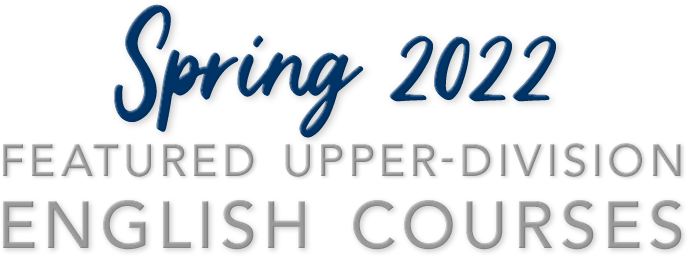

Technical Writing
ENC 4930.001
W/F 11:00am–12:20pm
J. Mason
Category 3
Technical Writing is an introduction to technical writing for students across the disciplines—no technical knowledge or technological ability is required. Instead, we will approach technical writing rhetorically, using common objects, processes, and instructions to learn genres and strategies useful in a variety of contexts (from routine to technical).
Students will engage in hands-on learning—with recipes, Lego blocks, origami, and craft materials—to practice writing strategies for technical genres such as definitions, mechanism and object descriptions, instruction sets, tutorials, usability tests, and white papers.
In addition to becoming more effective communicators, students will also explore ethical issues in technical writing, develop strategies for information design, accessibility, and writing for digital platforms, and will experiment with the tools and technologies of contemporary technical writers.
Counts towards the Pre-Law concentration in Interdisciplinary Studies.
American Literature: 19th C. traditions
AML 4223.001
T/R 9:30am–10:50am
S. Johnson
Category 2
Many nineteenth-century American genres, such as the frontier novel, foregrounded an ideology of Native vanishing--that as American settlements expanded, Indigenous peoples were "destined" to fade away. These ideas were key to the political projects of nineteenth-century settler "Manifest Destiny"--that the United States was "destined" to extend from coast to coast. In response, however, Native literatures of the nineteenth century represent the endurance of tribal-national relations. This course takes up Indigenous and settler conflicts over the political projects of expansion primarily through depictions of Native intimacy—not only love, kinship, and marriage, but also the lived rhythms of communal sovereignty—as central to everyday negotiations over national identity, individuality and personhood, and family life. Over the course of the semester, we will take up sets of paired texts—settler and Native narratives—to consider their portrayals of intimacy as sites of struggle over regulations of American identity. In this way, we’ll see how Native literatures resist settler impositions of domesticity, marriage, and heteronormativity as forms of defiance to larger projects of American political expansion.

Advanced Exposition
ENC 3310.002
M 9:20am–12:30pm (Davie, In-Person)
E. Kiley
Category 3
This course will focus on building on and refining composition skills developed in lower-level composition classes with an emphasis on sharpening both revision and critical thinking skills. We will use a combination of discussion-based and workshop-style classes to work on composing refined and polished writing in a variety of genres such as conventional essays, podcasts, infographics, and even social media “campaigns” developed in response to a current societal issue or concern. We will also discuss and consider contemporary social issues and concerns in both our class discussions and our class projects. Students will be afforded choice in terms of topics to work on and genres to work within for most, if not all, assignments. You will write both finished and preparatory writing, and we will focus much of our attention on revision through peer review workshops and instructor-led revision sessions.
Counts towards the Pre-Law concentration in Interdisciplinary Studies.
Medieval British Literature
ENL 4210.001
M 4:00pm–6:50pm (Davie, In Person W/ Live Remote Option)
J. Leeds
Category 2
This course introduces students to the major forms, themes, and conventions of English literature during the period from 750 to 1450 CE. Substantial attention will be paid to historical context and to connections between English and Continental literatures during the Middle Ages. Old English texts will be read in translation, but most of the Middle English texts on the syllabus will be studied in the original, with plenty of help from the instructor. Students will leave the course understanding how and why the basic concerns of medieval British literature evolved from the heroic poetry of the Germanic tribal era to the prose romances of the late Middle Ages. Knights, ladies, dragons, fairies—and the hope of heaven!
Satisfies pre-1800 distribution requirement for English majors;
Satisfies Option 2 in British Literature for English Education majors.
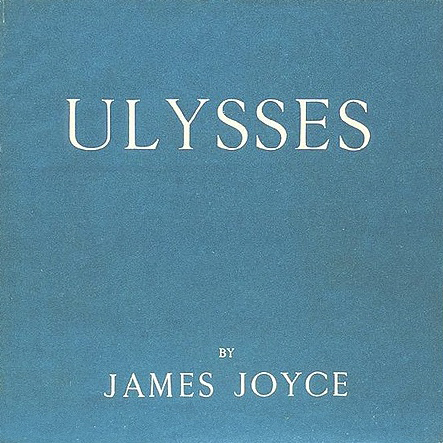
James Joyce
LIT 4930.002
W 11:00am–1:50pm
J. Ulin
Category 1 or 2
This course will celebrate the 100th anniversary of the February 2, 1922 publication of one of the most controversial and challenging novels of all time, James Joyce’s Ulysses. We will read some of Joyce’s earlier fiction before turning to the novel that became the subject of a 1933 obscenity case, The United States v. One Book Called Ulysses, and transformed what was possible in fiction. Since we will be studying this novel in 2022, we will have the unique opportunity to take advantage of the many readings and talks that will mark the centenary as we take our own odyssey through the novel that T.S. Eliot called “the most important expression which the present age has found . . . a book to which we are all indebted, and from which none of us can escape.” Please note that this course will meet once per week (W 11-1:50).
Studies in Writing/Rhetoric: Document & Form
ENG 4020.001
Fully Online Class
A. Stagliano
Category 3
In this course we will study and practice the art and rhetoric of designing documents, from pages in books, to posters/flyers, and everything else and in between. We will have two related goals with this course. First, to study and better understand how the way our information is presented to us influences how we receive that information, that is, its rhetorical capacities. Second, while we read about how document design can be rhetorical, we will practice making our own, in a variety of genres. Through all of this, we will also think about access, about how certain ways of presenting information are more accessible than others, and how our decisions in organizing our information are not just rhetorical but have ethical dimensions as well.
At the end of the class, you will have a deepened understanding and vocabulary for visual and material forms of rhetoric, as well as specific skills in typography, layout, and design.
This is a writing intensive Gordon Rule/WAC course. Fulfills requirement for English Education majors (English Ed majors must take either ENC 3310 or ENG 4020). Counts towards the Pre-Law concentration in Interdisciplinary Studies.
LGBTQ+ LITERATURE
LIT 4523.001
W 7:10pm–10:00pm (Davie, In Person W/ Live Remote Option)
R. Adams
Category 1
In this course we will study lgbtq+ literature, with a focus upon biography, history, genre, and reader response. We will be reading lgbtq+ writers of fiction, memoir, and poetry from the mid-20th-century through today. Authors we will be reading include Patricia Highsmith, Christopher Isherwood, Alison Bechdel, Ocean Vuong, and Danez Smith. This course will be taught in the hy-flex modality, which offers the opportunity for students to attend either in person (in Davie) or online through zoom. The lecture-discussions also will be recorded and posted on zoom and it is possible to take the course entirely as an asynchronous course at your own pace, although I encourage students to take advantage of the live lecture-discussions, as the nature of the course is interactive and discussion-based, and all written assignments will emerge from the particular nature of these discussions. You are very welcome in this course!
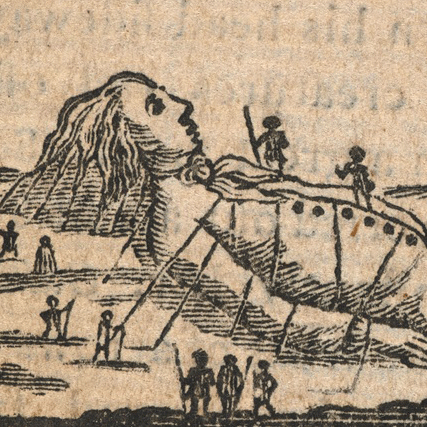
18th-Century Literature
ENL 4230.001
R 7:10pm–10pm (Davie, In Person W/ Live Remote Option)
E. Stockard
Category 2
We will read poetry, essays, and satirical fiction (excluding novels) of the 18th century. The best known of these works is Gulliver’s Travels by Jonathan Swift. We will look not only at Gulliver’s better-known travels to Lilliput, but also at his sojourns among giants, political tyrants, and talking horses. As they become familiar with the intertwining religious, political, social, and intellectual issues of the time, students will be challenged to think critically about currently accepted ideas: for example, the notion of progress, the status of scientific thought as the avenue of that progress, and the belief in the supremacy of the individual.
Satisfies pre-1800 requirement for English majors. Satisfies Option 2 in British Literature for English Education majors.
Intro to Literary Studies: Imagining Energy
ENG 3822.005
T 4:00pm–6:50pm (Online Live Lecture)
S. Balkan
Required for English Majors
What would happen if we were to examine literary texts through the lens of energy forms like coal or windpower? That is, what if we approached William Wordsworth’s Romantic ruminations on the “sublime” crafts of “men’s arts” as a praxis for thinking about the material forces of the sublime—“motion and means…on land and sea” made possible first by the winds that would move commerce across the Atlantic in the 1790s and soon thereafter by coal? Might we then understand coal, e.g., as a means of fueling cultural expression? In this class, we will read from a wide archive of works spanning the ages of wood, coal, petrol, wind, hydro-, and solar power. We will follow the After Oil collective in examining how aesthetic forms represent and reinforce not only different energy regimes, but our collective cultural desires; and we will ultimately ask how we might imagine life after carbon.
Required for English majors. Fulfills requirement for English Education majors (English Ed majors must take either LIT 3213 or ENG 3822).
Fiction Workshop: Considering Worlds
CRW 4120.001
W/F 11:00am–12:20pm
K. Schmitt
Category 3
This course is concentrates on essentials of the short story form. We’ll consider modern authorial styles from a variety of perspectives, focusing primarily on close reading techniques that can be applied to creative writing workshops and reading assignments (reading critically with consideration of point of view, narrative form, voice, character creation, and tone/atmosphere, etc.), including workshop feedback. We’ll read and study The Hitchhiker’s Guide to the Galaxy by Douglas Adams, The Boy Detective Fails by Joe Meno, and Girls by Frederick Busch (which will be considered in terms of the short story, “Ralph the Duck,” that it was based upon), in addition to other short fiction reading assignments. Students will write at minimum one full (and subsequently revised) short story, in addition to creating short writing submissions for workshop that are designed to contribute to the fiction writing process and/or the short story submission. All students will write a significant amount of interpretive analysis of student writing.
Intro to Literary Studies
ENG 3822.006
W 9:20am–12:30pm (Davie, In-Person)
E. Kiley
Required for English Majors
As a foundational gateway to the study of literature for English majors, this course will prepare you to enter the field of literary studies by introducing three different genres as well as key literary concepts. We will focus on developing skills in close textual analysis and literary research. You will learn essential terms of literary discourse and practice the tools needed for effective literary analysis, such as close reading strategies, critical approaches to literature, and strategies for literary research. In other words, you will learn to respond to, closely read and analyze, and research literature in ways that will be useful and productive as you move toward your next steps as literary students and scholars. I aim to share with you skills that I know will be useful as you move through the rest of the English major. In other words, my goal is to act as a mentor—someone who is here to guide you through the skills you will need to obtain in order to be successful students of literature. To fulfill these objectives, you will read texts from the genres of poetry, fiction, and creative nonfiction, as well as some theoretical essays. We will focus primarily on contemporary American Literature, considering the ways literature is shaped by society, and how we, as readers, situate ourselves within both literary and cultural texts.
Required for English majors. Fulfills requirement for English Education majors (English Ed majors must take either LIT 3213 or ENG 3822).
African American Literature
AML 4607.001
F 11am–1:50pm
S. Dagbovie-Mullins
Category 1
This course aims to interest students who have and have not previously studied African American literature from the turn of the twentieth century through the present. The course stresses close reading and critical interpretation of the texts as well as analytical writing about the works we will cover. We will pursue a chronological examination of African American fiction, drama, poetry, and theoretical essays, paying close attention to how the politics and rhetoric of literary art have changed over time. We will also consider the historical, cultural, and social contexts that have shaped African American literature including literary movements such as the Harlem Renaissance, the Protest Period, the Black Arts Movement, the New Black Aesthetic, and the Post-Soul Aesthetic.
Jewish-American Literature
AML 4663.001
T/R 2:00pm–3:20pm
A. Furman
Category 1
This course will provide you with the opportunity to explore the work of several major (and emergent) Jewish-American fiction writers. We will pay attention to the aesthetic issues informing this literary tradition, with a keen eye toward its synergies and rivalries with other literary traditions (e.g., modernism, “American” literature, postmodernism). In addition, the novels and short-stories should provide you with a richer understanding of Jewish-American culture in this century than afforded by the more popular and pervasive media images of the Jew in America.
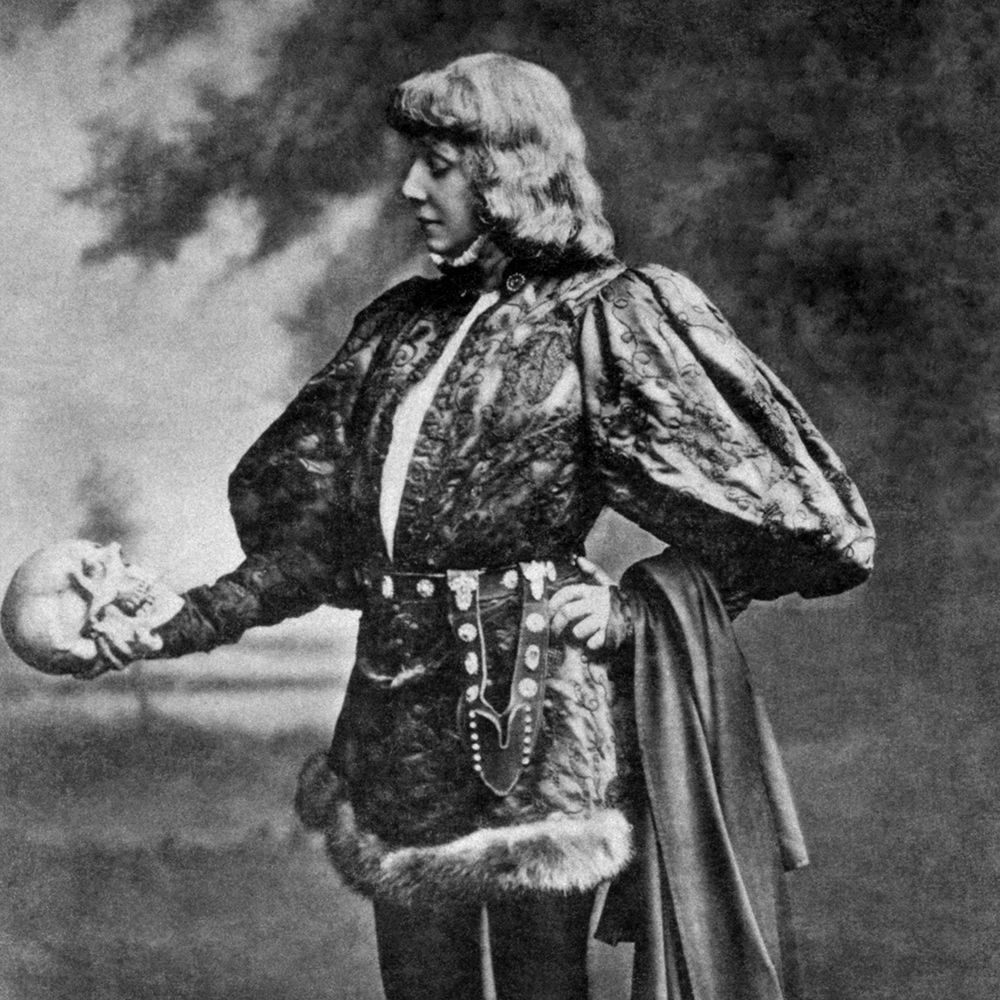
Shakespeare
ENL 4333.002
W 12:30pm–3:20pm (Davie, In-Person)
E. Stockard
Category 2
We will read nine plays by Shakespeare, with representative examples selected from his comedies, tragedies, and histories. Class discussion, which will focus very closely on the texts, will be accompanied by a generous supplement of video clips from a range of productions, including a cross-dressed staging. We will also screen a Bollywood adaptation of Othello. Among the perhaps unfamiliar contexts within which we will consider these plays are the concept of concordia discors, the conventions of Petrarchan love, and the history of the Wars of the Roses.
Satisfies pre-1800 distribution requirement for English majors. Satisfies Shakespeare, Milton, Chaucer requirement for English Education majors.
Structure of Modern English
LIN 4680.002
R 4:00pm–6:50pm (Online Live Lecture)
J. Leeds
Category 3
This course offers a comprehensive study of English grammar and syntax, focusing on analysis of the structures of English prose. We will examine in detail the elements of English prose at the levels of the word, the phrase, the clause, and the sentence, and we will analyze sentences of increasing complexity as the semester proceeds. By strengthening your grasp of grammatical interrelationships within the sentence, the course will also enhance your abilities as a writer.
Required for English Education majors.
LITERARY THEORY
LIT 3213.003
T 7:10pm–10:00pm (Online Live Lecture)
J. Leeds
Required for English Majors
This course introduces students to major schools and thinkers in the literary and critical theory of the 20th and 21st centuries: practical criticism, New Criticism, structuralism, post-structuralism, reader-response, psychoanalytical, feminist, critical race, and post-colonial, among the schools, and Saussure, Freud, Leavis, Jakobson, Derrida, Fish, Foucault, Brathwaite, and Cixous, among the thinkers. Our goals are that each student should be able, by the end of the semester, to read almost any recent piece of literary criticism with good understanding, to identify its theoretical affiliations with confidence, and to discuss some of its strengths and weaknesses as an approach to the interpretation of literary texts.
Required for English majors. Fulfills requirement for English Education majors (English Ed majors must take either LIT 3213 or ENG 3822).
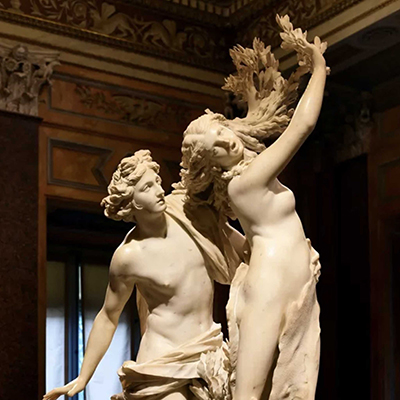
METAMORPHOSIS
ENL 3425.003
T/R 11am–12:20pm (Online Live Lecture)
S. Mitchell
Category 2
In this course we will explore the idea of transformation--physical, emotional, spiritual, and creative--in fiction, plays, poems, and memoir, along with important motifs related to transformation. One motif concerns power and powerlessness, whether that power is political, erotic, physical, supernatural, or creative. Another concerns transformation as an emotional/intellectual/spiritual process that is essential to growth and maturation, or what the psychoanalyst C.G. Jung called individuation. A third motif concerns how authors borrowed and transformed elements in early works to create entirely different meanings in their own works. A fourth motif concerns the transformation of some of the narratives we will read into works of visual art, music, and dance. This course satisfies the pre- eighteenth century requirement and counts toward a certificate in the Classics Program. For more information contact Professor Mitchell at smitch21@fau.edu.
Texts: Ovid, Metamorphoses; Apuleius, The Golden Ass; Shakespeare, A Midsummer Night's Dream; Haruki Murakami, 1Q84; Ann Carson, Autobiography of Red; Joy Harjo, Crazy Brave.
POETRY WORKSHOP I
CRW 4310.001
T/R 2:00pm–3:20pm (Online Live Lecture)
S. Mitchell
Category 3
Poetry Workshop 1 offers a thorough grounding in the fundamentals of poetry writing. By the end of the semester you will have been introduced to a variety of poetic forms and techniques as well as to strategies for deepening your own creative process. You will also learn how to move from the starting or triggering subject to the discovered subject--the subject filled with wildness and surprises, with mystery and maybe with the brokenness and suffering that are part of all human experience. Finally, you will learn how to open into insight and emotional complexity--- even how to retain the rough music and intensity of your first draft as you revise and polish your poem.
Required Text: The Norton Anthology of Modern and Contemporary Poetry. Ed. Jahan Ramazani. Third ed. Vol 2. New York: W.W. Norton, 2003.
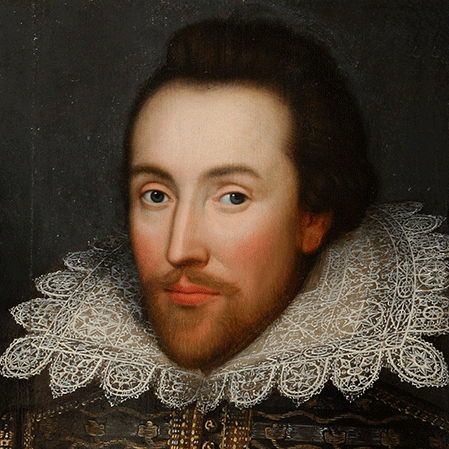
Shakespeare
ENL 4333.001
W/F 9:30am–10:50am
C. Chenovick
Category 2
This class focuses on the works and cultural contexts of William Shakespeare. This term, we will focus on a selection of sonnets and four plays by the bard with strong points of connection to key moral and social issues that continue to be significant in our own day. As we consider how Shakespeare engages with issues of gender and sexuality, power and consent, race, and colonialism, we will trace out the ways early modern treatments helped to shape our own present-day ways of thinking about these issues -- and how Shakespeare's plays continue to contribute to our own cultural beliefs and discourses. Taking our time with these plays will enable us to delve deeply into the historical contexts and documents that shape them as well as to spend time engaging with critics and contemporary sources that help us question the role of these plays in our own day.
Asian American Literatures
AML 4673.001
W/F 11am–12:20pm
A. Kini
Category 1
As an introduction to Asian American cultural politics, this course examines the dynamic relationship between the aesthetics of Asian American cultural production and the political histories of various Asian American communities. In addition to analyzing the literary conventions and representational forms employed by Asian American texts, we will discuss how Asian American literature and film engage larger political and cultural questions about race, gender, citizenship, imperialism and belonging in the U.S. Our study will be organized around four major events in Asian American history: the Chinese Exclusion Act of 1882 and the subsequent exclusion of Asian immigrants in the decades that followed; the incarceration of Japanese immigrants and Japanese Americans during World War II; the racial politics of imperial war and Islamophobia in the post-9/11 United States; and the sharp increase in anti-Asian racial violence during the Covid-19 pandemic.
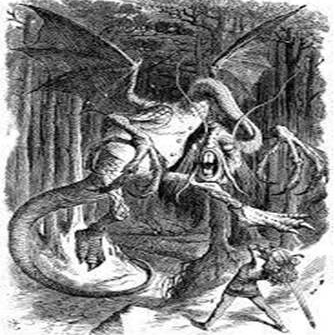
Literature of Adolescence
LIT 3333.002
T/R 3:30pm–4:50pm
T. Miller
Category 2
This course surveys some of the major examples of the “literature of adolescence” as it developed over the course of the twentieth century into our own, and with an emphasis on the intersections between writing for young people and the fantasy tradition in literature. Although precursors to modern fantasy writing such as fables, folktales, fairytales, and many other traditional forms of storytelling were not originally intended for exclusive consumption by young people, in modernity they quickly became associated with childhood and contributed in a major way to the development of children’s and adolescent literature as a distinct form of writing. Authors to be read include J. R. R. Tolkien, Ursula K. Le Guin, Nnedi Okorafor, Jewell Parker Rhodes, Akwaeke Emezi, and others. This course will prove particularly helpful to students interested in teacher certification or otherwise working in education, but all interested students are welcome.
Required for English Education majors.
Literary Theory
LIT 3213.002
T/R 12:30pm–1:50pm
R. Fox
Required for English Majors
In 1987, Barbara Christian writes, “[…] there has been a takeover in the literary world by Western philosophers from the old literary elite, the neutral humanists. Philosophers have been able to so effect such a takeover because so much of the literature of the West has become pallid, laden with despair, self-indulgent, and disconnected.” Here, Christian interrogates intellectual practice which works to exclude particular groups (i.e. women, people of color, immigrants), challenging readers to adopt more diverse modes of “theory” concerned with matters of accountability and survival. Importantly, “The Race for Theory” tackles the damaging effects of Poststructuralism, and imagines a relational way of meaning-making—as found in folktales, humor, and proverbs—in its stead.
This course considers the productivity and the limits of theory and its relationship to literature. Specifically, “Literary Theory” introduces approaches such as Psychoanalysis; Marxism; Feminism; Gender Studies; Queer Theory; Ethnic, Indigenous, Post-colonial, and Transnational Studies; Cultural Studies; Human-Animal Studies; Disability Studies; and Ecocriticism.
Required for English majors. Fulfills requirement for English Education majors (English Ed majors must take either LIT 3213 or ENG 3822)